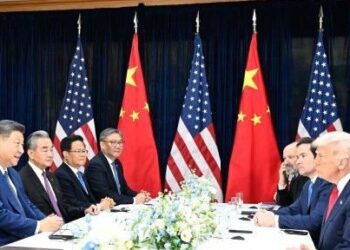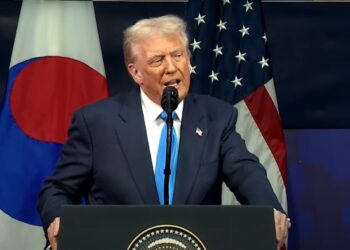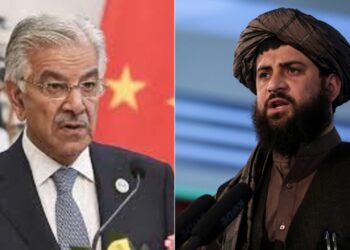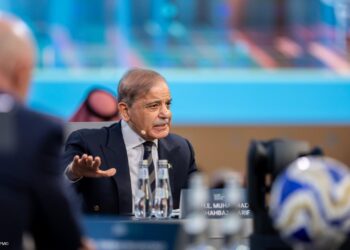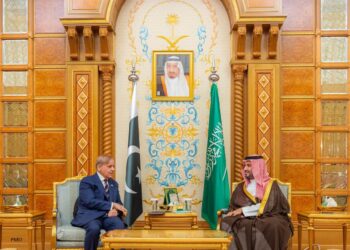Xinhua
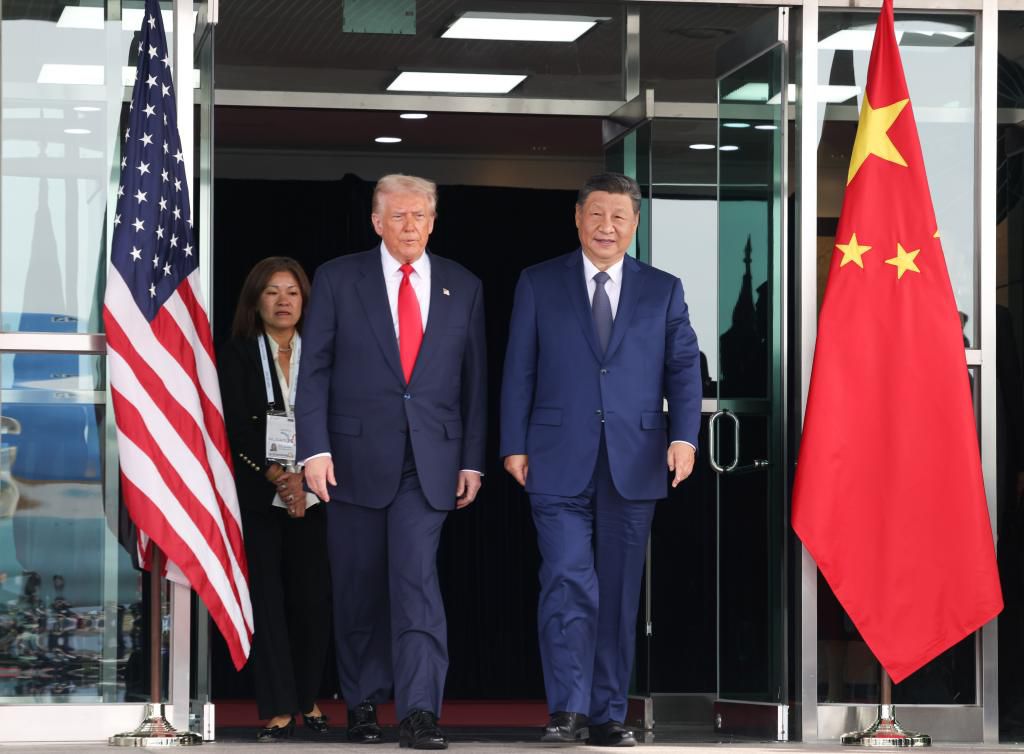
BUSAN: Chinese President Xi Jinping has reaffirmed his commitment to stable and cooperative China–U.S. relations, calling for partnership rather than confrontation during his meeting with U.S. President Donald Trump on the sidelines of the 32nd APEC Economic Leaders’ Meeting in Gyeongju.
“China and the United States should be partners and friends. That is what history has taught us and what reality needs,” Xi said, stressing that both nations must “navigate through winds and waves” to ensure the “steady sailing” of bilateral ties.
Despite differences, Xi said Beijing remains focused on “managing its own affairs well” while sharing development opportunities with the world. “We have no intention to challenge or supplant anyone,” he noted, emphasizing China’s long-term strategy of reform, opening up, and cooperation.
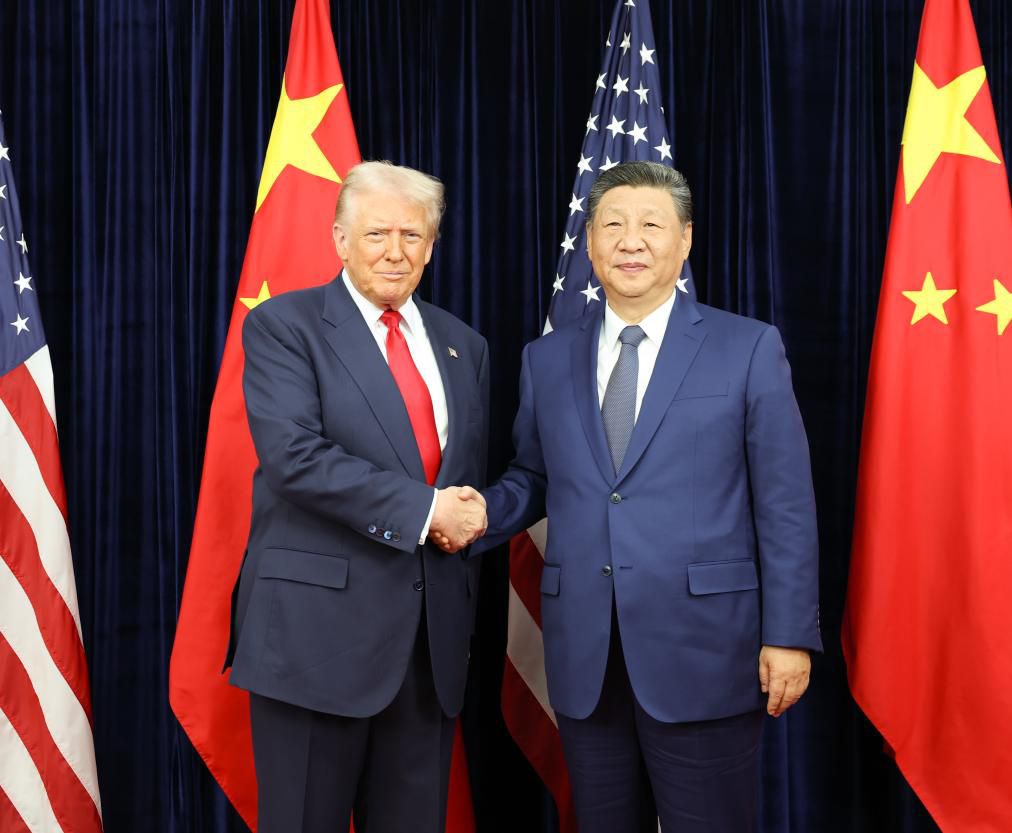
Xi Highlights China’s Economic Strength and Openness
Xi described China’s economy as a “vast ocean—big, resilient and promising,” pointing to a 5.2 percent GDP growth in the first three quarters of 2025 and a 4 percent rise in foreign trade, despite global headwinds.
At a recent plenary session, the 20th Communist Party of China (CPC) Central Committee approved recommendations for the next five-year development plan, aimed at promoting high-quality growth and “common prosperity for all.”
“We will further deepen reform across the board, expand opening-up, and pursue higher-quality development,” Xi said, adding that such efforts would also “expand the space for cooperation between China and the United States.”
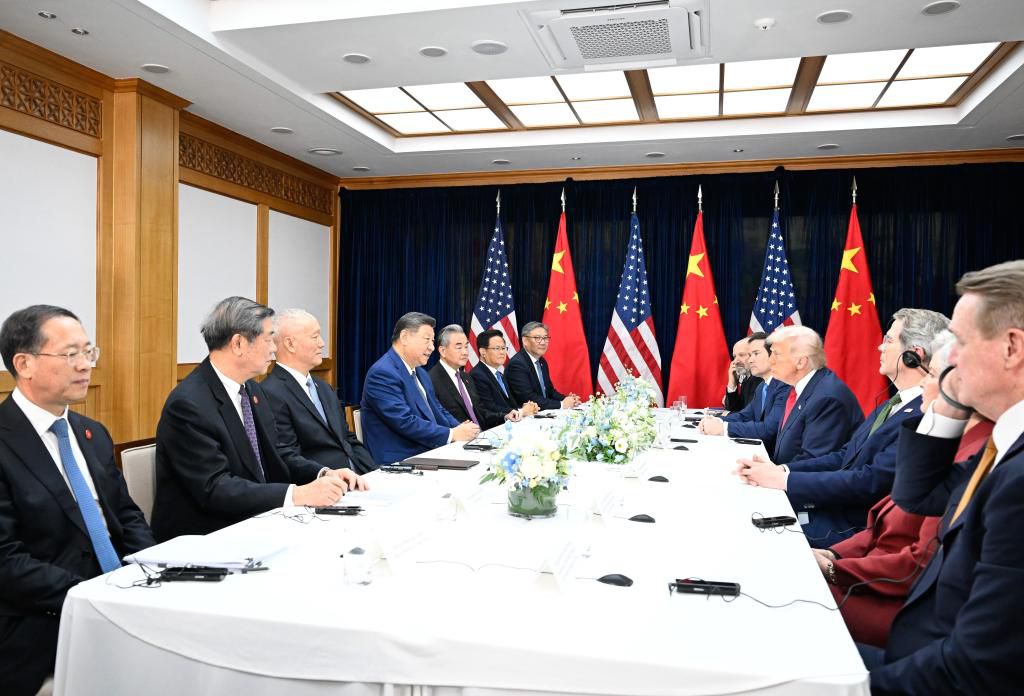
Trade as the Anchor of Bilateral Ties
Xi revealed that Chinese and American economic teams had held in-depth discussions and reached consensus on key trade issues. He urged both sides to implement follow-up steps swiftly to translate agreements into “tangible outcomes” that could restore global confidence.
“Economic and trade relations should serve as the anchor and driving force for China-U.S. ties—not a stumbling block or a source of friction,” Xi said, urging Washington and Beijing to avoid “a vicious cycle of mutual retaliation.”
He called for continued talks “in the spirit of equality, mutual respect, and mutual benefit,” encouraging both nations to “shorten the list of problems and lengthen the list of cooperation.”
Shared Global Responsibilities
Xi proposed broader collaboration between Beijing and Washington on shared challenges, including combating illegal migration, telecom fraud, anti-money laundering, artificial intelligence, and infectious diseases. He emphasized that major powers must “jointly shoulder their responsibilities” and pursue “dialogue over confrontation.”
With China set to host APEC in 2026 and the U.S. hosting the G20 Summit next year, Xi suggested that both sides support each other to make these gatherings “productive platforms for world economic growth and improved global governance.”

